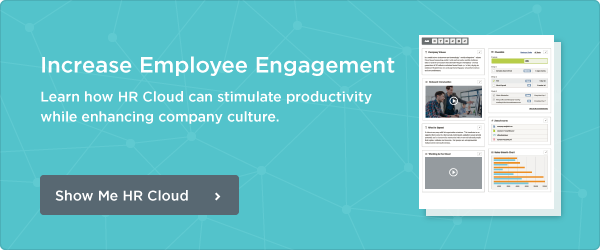It seems that every other week we are bombarded by articles denouncing HR, predicting the demise of HR, or reminding us that HR is doomed. Sometimes the authors take that route because, let’s face it, it makes for an enticing headline and leads to lots of clicks. While I don’t believe that HR is heading towards full-out extinction, it IS time for a radical reimagining of what human resources stands for, which requires a transformation of the profession as well as the adoption of a new mindset by human resources practitioners.
The Profession
In a recent Forbes article, Liz Ryan posed the question, “Do We Still Need Human Resources?” and she proceeded to answer with a resounding “yes,” while promoting the concept that “the job of HR is to become an organization’s Ministry of Culture, celebrating and reinforcing the awesomeness of the people who work there.”
She went on to explain, “We don’t need mechanical, quantitative HR in our companies. Any organization that hasn’t outsourced the spreadsheet half of HR is wasting its precious resources, money and time. The real job of HR is down on the ground and out on the street with the team members. Our job is to listen and advise. Our job is to talk and act to make our organization an amazing, vibrant, human place to work.”
Well... no and yes.
Do we need to review and assess quantitative and numerical data in order to make sound business decisions? Of course we do; for far too many years HR has been accused of neither understanding basic quantitative concepts nor applying basic statistical stools, mathematical modeling, or measures of variability to the work that we do.
Let’s not, as the saying goes, toss the baby out with the bath water.
We do, however, have opportunities to redefine the role of HR in our organizations as we move to a more strategic focus on talent management and organizational capability while also controlling the cost (and time!) spent on transactional work. And part of that is the ‘culture’ thing. It’s important enough that Merriam-Webster even named ‘culture’ as the 2014 word of the year.
So if it’s time to shift our focus and reconstruct HR teams into ministries of culture or innovation or awesomeness or whatever, then that transformation must also begin at the practitioner level.
[Tweet "The transformation of HR must begin at the practitioner level @HRCloud"]
The Practitioner
Business professionals enter the human resources field in a variety of ways. Some deliberately embark upon a career in HR while others find themselves landing in the HR department by happenstance. No matter how one arrives though, each practitioner needs to ask (and answer) a few questions in order to clarify their personal—and organizational—HR philosophy:
• What does HR do?
• Why do we do it?
• How do we do it?
This may be a personal and informal exercise or it can be quite formal. It may be something that is shared only amongst the HR team or it can be disseminated across the organization. The purpose of this is to ensure the HR team outlines the principles used to determine how they will operate in alignment with organizational mission, values, and strategic vision. This also provides a framework for the HR staff as they determine how they’ll behave, how they’ll make decisions, and how they’ll determine areas of importance.
If, for example, your HR department desires to be a “Ministry of Culture” as proposed by Liz Ryan, when you ask those what, why and how questions, you will find employees (people! humans!) are central to each answer. At the end of this evaluation if you ask “What do I want HR to be known for in my organization?” your answer might very well be “supporting the growth and talent capabilities of employees” as opposed to “minimizing risk and reducing employee relations issues.”
See that difference?
Here’s a dose of reality though… working in human resources we’ll always have responsibility for compliance, risk-mitigation, and administrative and maintenance HR and those obligations won’t go away. We must manage them with perfection, of course, and technology can be our friend, time-saver and life raft all rolled into one.
The metamorphosis of the profession; however, will come about when we, and those with whom we work, realize those foundational aspects don’t define HR.
What defines HR is at the intersection where one’s HR philosophy (what/why/how we do what we do) perfectly aligns with organizational business and strategic objectives.
It’s a personal definition and an organizational definition.
Keep Reading
Secure Onboarding: Best Practices for Protecting Data with Remote Hires
The option of working from home also means that organizations can hire anyone worldwide;
Internal Communication Best Practices: A Complete Guide for Modern Workplaces (Free Templates Inside)
In modern workplaces internal communication has evolved far beyond emails and bulletin


